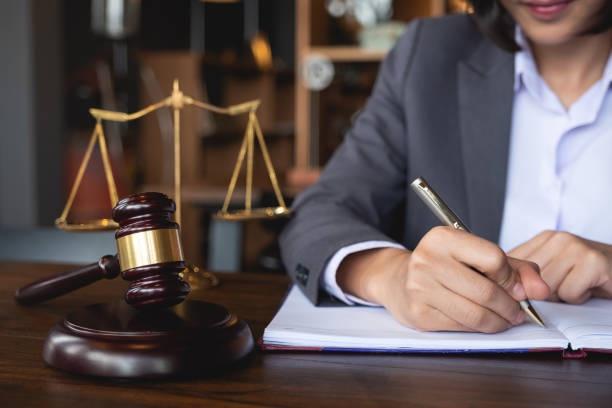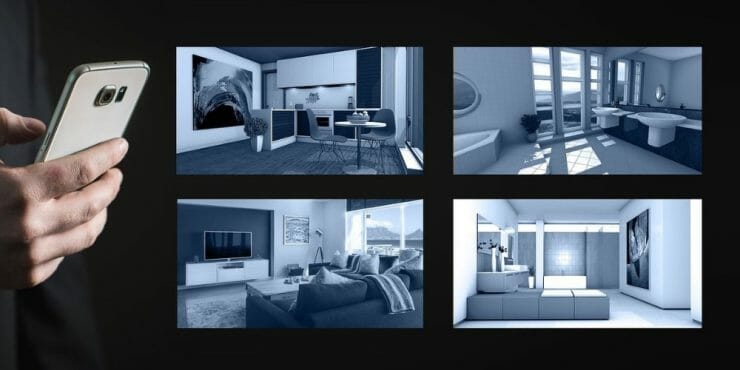A while back, I had dropped my wallet in front of my car at a gas station, only to have someone pick it up and steal it.
I had to go through a bit of a process to get a hold of the gas station’s security camera footage, so I have some experience with this situation. I will be giving you some great methods below.
Determine the Reason Why You Need the Footage

Today, you can see cameras almost everywhere. When you ask a store for a surveillance video, the most important thing to think about is whether your reason is strong enough to convince them to hand over the recorded video.
The video footage of the accident can provide clear evidence of your compensation claim. Getting into an accident is not all there is to it. You might be involved in a theft or harassment case. On the other hand, you might lose your belongings at the store. Make sure you explain your situation and the necessary details clearly.
Ask the Manager of the Store

Everyone has the right to ask. A non-accusatory tone would be appropriate when asking the owner for assistance. There may be an item you are looking for in the store’s lost and found bin in the manager’s office waiting for you to contact the store. Therefore, there is nothing wrong with asking for CCTV footage.
To request permission from the CCTV system’s owner, you must send a formal request. A written request is ideal, but a verbal request is also acceptable. In most cases, the camera’s owner’s information is written on an attached sign (unless it is obvious, like with a shop).
Tell them that you seek information about yourself protected by data protection laws. If you want to request your data, the Information Commissioner’s Office (ICO) has guidelines for you.
Identify yourself by providing information, for instance:
- The time and date of a specific event.
- A document proving your identity.
- Helping the process with a brief description of yourself.
Video footage from CCTV cameras must usually be provided free of cost within one month of purchase.
The CCTV owner cannot share any footage due to the following reasons:
- There are other people visible in it.
- To protect people’s identities, they cannot edit people out.
The CCTV owner can invite you to watch the footage if:
- They can’t provide you with recordings.
- You accept an agreement.
- They can refuse if sharing the footage would compromise an ongoing criminal investigation.
Unfortunately, most business owners or property owners are not willing to provide you with surveillance tapes if you ask for them, especially in the event of an accident you did not cause. The following steps are to be taken to obtain it:
Hire an Attorney

Immediately after being injured on someone’s property, you should contact an experienced premises liability attorney. Getting a copy of video footage from the negligent owner can be as simple as sending them a letter stating your claim and asking them to send you a copy. You can hope that this will discourage them from tossing out the footage. (1)
File a lawsuit

Some property managers and owners of properties ignore letters, refusing to turn over footage or destroy it. Therefore, you will need to file a lawsuit immediately and ask the court to issue a writ commanding the negligent party to attend court to provide the surveillance footage. An owner who destroys an object (in this case, the recorded video) may be responsible for any damage caused. (2)
How Long Do Businesses Usually Keep Security Camera Footage?
The answer to this question differs from organization to organization and depends on what the organization needs regarding video surveillance. Almost all store managers recommend to business and residential customers that they buy hard drives big enough to store video footage for at least a month. The company may recommend storing video footage for up to three months, depending on the size.
If a business chooses to record surveillance footage through a motion detector, it will also affect how much footage is recorded over time. Continuously recording on a schedule or whenever motion is detected will affect the amount of footage available.
Final Thoughts
Even when some individuals and organizations provide video footage voluntarily, in some cases, video footage may need to be obtained through formal legal channels. You must be aware of the legal procedures to obtain a surveillance video of yourself. Remember that a polite tone is always a plus in any situation. Be patient when exchanging information and requirements.
There is also a possibility that locating and copying accident footage from a company’s massive database of video recordings would be too expensive or difficult. You will likely need an attorney for any available camera footage on your behalf, regardless of the case (and to assure that any video footage you obtain will be admissible in court).
References
(1) Hire an Attorney – https://www.entrepreneur.com/article/58326
(2) writ – https://www.britannica.com/topic/writ

